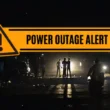The Board of Higher Secondary Education Karachi has taken a step towards modernization and announced its plan to adopt e-marking for compiling examination results. The manual checking of exam copies will soon be phased out, and online assessment will be initiated. With this system, teachers will have the flexibility to check exam copies at any time and from anywhere. In the e-marking system, the answer sheet will not be checked by an individual teacher.
In an interview, Professor Saeeduddin, the Chairman of the Board of Higher Secondary Education, revealed that e-marking is a digital process where all the pages of the answer copy are scanned and barcodes are placed on each page. Teachers will then crop the pages, and these pages will be shared online with various teachers through software. The initiative of digital transformation will enable transparency in the examination system and speed up the preparation of results.
The Chairman also explained that different questions of the paper are sent to different teachers, and they will check them online at home. There are rubrics, which contain all the essential points of the question asked. If the student has written all these points in his or her answer, then they will receive full marks. In e-marking, students get more marks.
In addition to 8 to 10 teachers in marking, there will also be a head examiner who will monitor the teachers online. Suppose a child should have received 8 marks for a question, and the teacher has given them only 5 marks. In that case, the head examiner will ask why the child was given low marks, and the teacher can recheck the copy at the same time.
Dr. Saeeduddin emphasized that this assessment will not only speed up the result compilation process but also reduce the chances of mistakes and end the perception of teacher bias. In the current system, a child’s copy is checked by a single teacher, leading to the perception that the teacher has deliberately given low marks. However, in e-marking, the copy of one child will be checked by different teachers, minimizing the chances of errors. The e-marking system will bring results faster and more accurately.
The Department of Universities and Boards has already approved the e-marking system, and Peshawar has adopted it. Lahore is also planning to adopt it this year. The Board of Higher Secondary Education is aiming to partially introduce e-marking in the Part I examinations, and a pilot project will begin next year. The implementation of e-marking will make the process of paper checking transparent, reliable, and accurate, ensuring a fair assessment of students.
Tags: Pakistan, education, Board of Higher Secondary Education Karachi, e-marking system, exam copy checking, online assessment, digital process, transparency in examination system, speedy preparation of results, rubrics in e-marking, monitoring teachers online, reduced chances of mistakes, bias-free marking, approval of e-marking by Department of Universities and Boards, pilot project for e-marking, reliable and accurate results, improved examination system, Board of Higher Secondary Education Karachi, E-marking system, Exam copy checking, Online assessment, Digital process, Transparency in examination system, Speedy preparation of results, Rubrics in e-marking, Monitoring teachers online, Reduced chances of mistakes, Bias-free marking, Approval of e-marking by Department of Universities and Boards, Pilot project for e-marking, Reliable and accurate results, Improved examination system.










